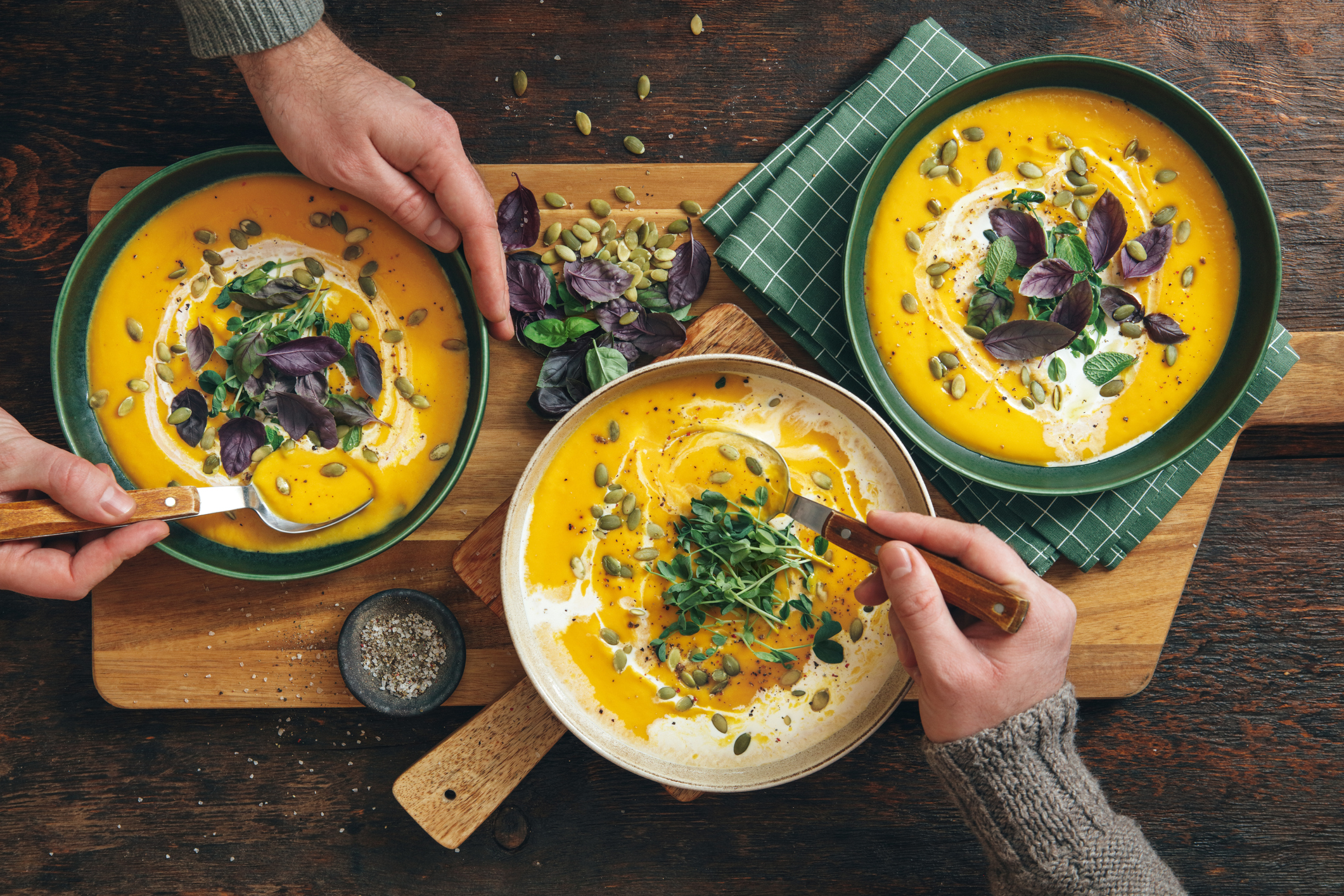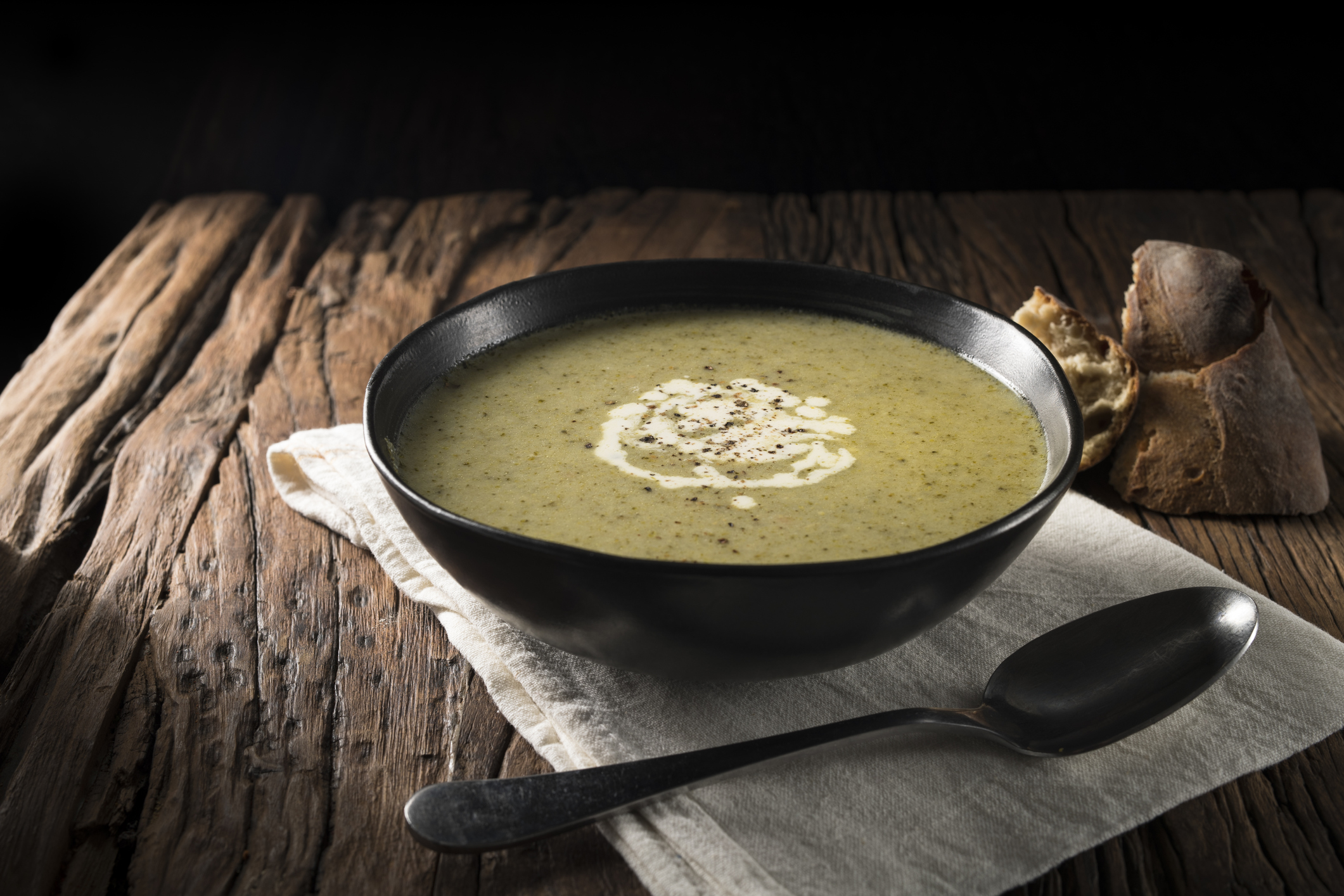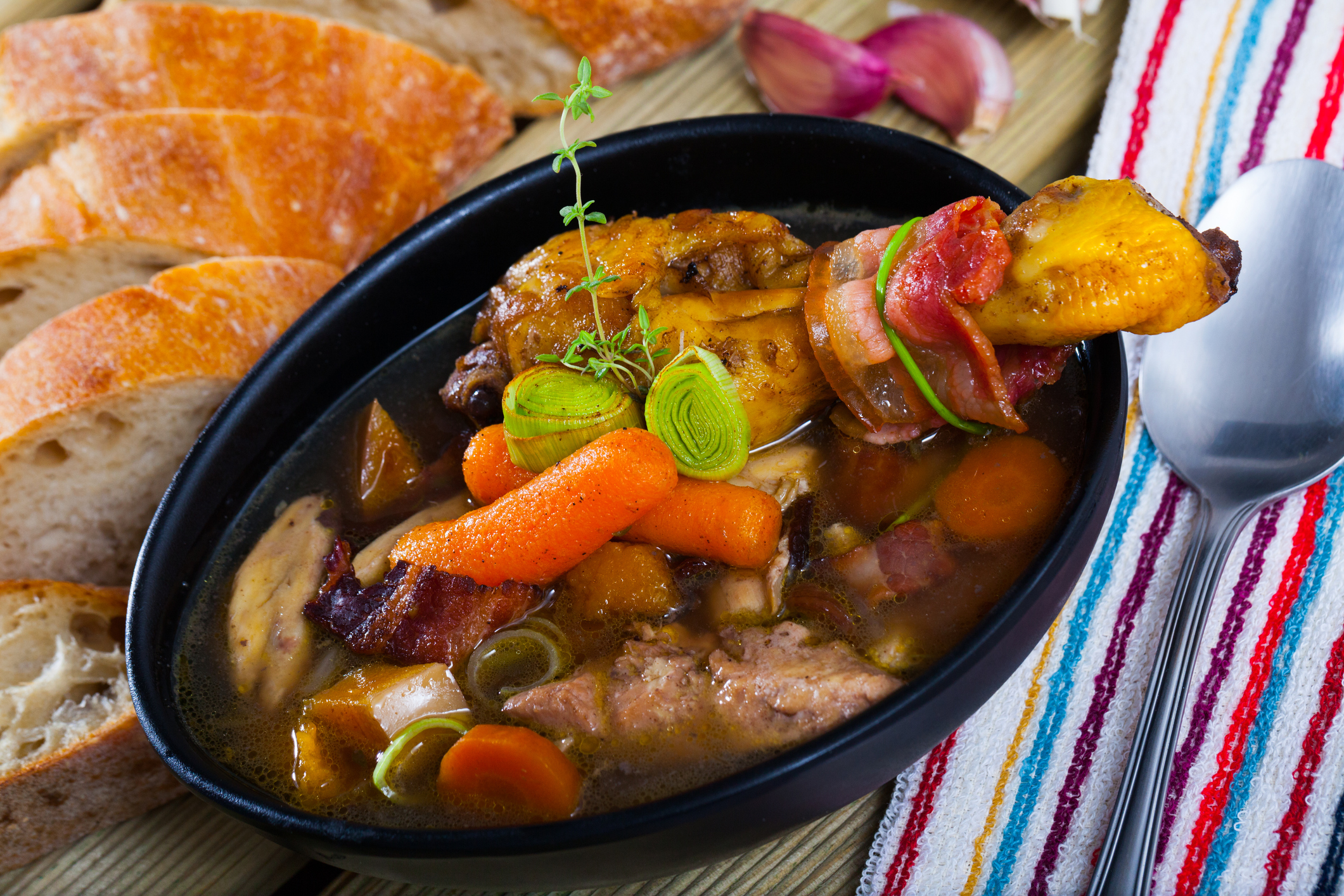Soup: The universally-adored comfort food, offering reassurance, consolation, succour and delight
Whether it’s a laborious bouillabaisse, a sophisticated French consommé or a citrusy avgolemono, no dish is as comforting or democratic as soup, says Tom Parker Bowles.


Of soup and love,’ goes an old Spanish proverb, ‘the first is best.’ Although a bowl of steaming broth may not have quite the allure of Cupid’s arrow, soup will rarely let you down. In fact, one can quite understand why Esau traded his birthright for a bowl of pottage. Because there’s a variety for every whim, mood and desire, from the parsimoniously spartan to the downright Baroque. It can be blessedly, fundamentally simple, little more than vegetables simmered in water. Or garishly, lavishly ornate, like Paul Bocuse’s Soup Elysée, for which black truffles and foie gras are drenched in golden consommé, all beneath a puff pastry lid.
One particular favourite of Queen Victoria, consommé de faisan aux quenelles, took three days to prepare. On the first day, the pheasant meat and bones were simmered for hours to extract every last molecule of flavour. The second saw fresh meat minced, returned to the consommé with vegetables, clarified with a mixture of beef mince and egg white, then strained through a very fine cloth. The third day was spent making the quenelles, breast of chicken mixed with a thick white sauce and cream before being forced through a sieve, shaped into small ovals, and poached. All that work, gone in a few regal sips.
But despite the labour needed to prepare the more exalted of its incarnations (and don’t even get me started on bouillabaisse, that Marseillais dish of humble birth that now wears the clothes of a king), soup is the most democratic of lunches. The least demanding, too, at least when it comes to the eating, needing little more than a spoon and, if noodles are involved, a pair of chopsticks, too. A full set of teeth is entirely optional.
And it’s universally adored, a dish that offers not only comfort, but reassurance, consolation, succour and delight, born as soon as man found fire and made a vessel to perch atop the flames. Its etymological roots are equally prehistoric, coming from an ancient German word, sup, which also gave us sup and supper, moving into suppa, then soupe in old French, meaning a piece of bread soaked in liquid. Consommés are the thinnest and most delicate, moving through broths, soups, bisques, pottages, chowders, skinks, brees and the rest.

One of my earliest food memories involves Heinz tomato soup, scalding hot and sweetly bland, served after swimming, our skin scented with chlorine, our hair still wet. We’d each get a chunk of buttered baguette, a bread as exotic as Nubian dancing girls back in late-1970s Wiltshire, and would sit in blissful silence, dunking, slurping and wiping every last smear clean.
Then there was that beef noodle soup — many years later, in the roadside stall outside Luang Prabang in Laos — that I can still taste, jungly with mysterious herbs and murky in all the right ways.
And French onion soup at La Brasserie in South Kensington, served by grumpy waiters, their toupées askance, so hot it burned the skin from the roof of your mouth.
Sign up for the Country Life Newsletter
Exquisite houses, the beauty of Nature, and how to get the most from your life, straight to your inbox.
There are bullshots and borscht, laksas and ramen, gazpacho, gumbos, egusi, and pho. I once ate a soup, luu, made from cold buffalo blood, sitting in a northern Thai trucker’s stop, deep in the sultry night. It was gently ferric, with a hint of the medicinal and a great chilli thump. Not exactly soothing, but cooling all the same.
When the nights grow longer and my needs are more basic, I turn to chicken noodle, both Jewish and Thai. Or minestrone, heavy on the Parmesan, and avgolemono, with its sly citrus kick. Life may be unpredictable. But there will always be soup.
Recipe: Cock-a-leekie soup
This recipe for Cock-a-leekie is taken from Jeremy Lee’s Cooking, which came out last year. It’s already a sauce-splattered, bona-fide classic. Not only are the recipes splendid, but the writing is lyrical and lovely too. Rather like the author.
Anyway, it’s a book to be devoured with greedy delight, as wise as it is practical. And although prunes are a traditional ingredient for this fine Scottish soup, Mr Lee always felt their inclusion odd: ‘I can only presume the Presbyterian leanings of the farmer quoted in the Scot’s Kitchen who noted that the man was an atheist who first polluted cock-a-leekie with prunes. From a culinary perspective, I agree wholeheartedly.’

Ingredients
Serves 6
- 4-6 medium-sized leeks
- 1 whole small organic chicken or 4 organic chicken legs, even better a capon
- 4 large waxy potatoes, peeled and coarsely chopped
- 3 sticks of celery (peeled if stringy)
- 3 bay leaves
- 4 whole allspice
- A generous bunch of curly parsley, chopped
Method
Trim the leeks and slice into short lengths, say 2cm (just under an inch) or so. Wash these thoroughly in a fair few changes of cold water.
Place the fowl or legs in a large pot. Cover with water. Add the potatoes and celery. Add the bay leaves and allspice. Place the pot on a stove. Bring to the boil, lower the heat and simmer for five minutes, then turn off the heat and leave all to steep for 20 minutes.
Lift the chicken from the broth. Return the broth to the boil and tip in the leeks. Boil for five minutes then remove from the heat. Joint the bird and arrange the pieces in a large, deep, serving bowl. Heap the leeks and potatoes in the middle of the bowl. Strew with parsley and pour over the broth.
Tom Parker Bowles is food writer, critic and regular contributor to Country Life.
-
 The King's favourite tea, conclave and spring flowers: Country Life Quiz of the Day, April 22, 2025
The King's favourite tea, conclave and spring flowers: Country Life Quiz of the Day, April 22, 2025Tuesday's Quiz of the Day blows smoke, tells the time and more.
By Toby Keel
-
 London is the place for me* (*the discerning property buyer)
London is the place for me* (*the discerning property buyer)With more buyers looking at London than anywhere else, is the 'race for space' finally over?
By Annabel Dixon